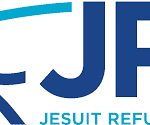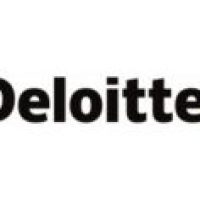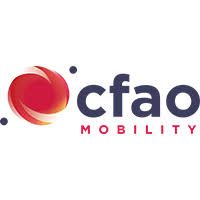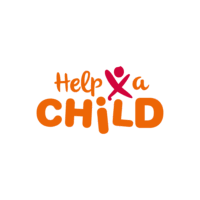1. Introduction
Jesuit Refugee Service (JRS) is a ministry of the Society of Jesus, acting as an international
non-governmental organization with a mission to accompany, serve, and advocate for the
rights of refugees and forcibly displaced people. The organization was founded in 1980 and
has a presence in 58 countries. In Uganda, JRS operates in two locations, Kampala and
Adjumani in the West Nile Region, offering services encompassing basic needs, education,
mental health & psychosocial support, livelihoods, socio-economic integration, pastoral
care, peacebuilding, and reconciliation.
2. Background
Adjumani refugee settlement in Uganda hosts a diverse population of both refugees and
local community members, both of which face challenges in accessing sustainable
livelihood opportunities. Limited access to formal employment opportunities and
underutilized potential in agriculture, self-employment, and formal employment
contribute to income disparities. To unlock untapped economic potential and catalyze
income growth, JRS with funding from Conrad Hilton Foundation (CHF) implemented a 3-
year grant initiative, from December 2022 to November 2025, aimed at increasing self sustainability
of refugees and vulnerable host community members. This was done
through integrated approach of quality vocational skills training and agricultural activities
for over 2000 refugees & host community members, and linkage to socio economic
integration for over 900 people, access to adult literacy for over 500 people and mental
health and psychosocial support services to over 400 people. This aimed to empower these
vulnerable communities on their pathway to self-reliant livelihoods.
The project was jointly implemented in consortium of 5 with three selected congregations of religious women that included the Missionary Sisters of Mary Mother of the church, Missionary Sisters of the Sacred Heart of Jesus (Cabrini Sisters), Sister of the Sacred Heart of Jesus Adjumani. As lead consortium member JRS Adjumani provided trainings in adult literacy, financial literacy, business skills, entrepreneurship training and mental health & psychosocial support services to beneficiaries of all four consortium members. This project not only served the targeted beneficiaries but also built the capacity of consortium members (religious women), bolstering the skills needed to effectively engage in this intervention, as well as enhance their ability to sustain improved programming to serve those in need well into the future.
Project Goal: To increase self-sustainability of South Sudanese refugees and most
vulnerable host community members, especially women, through quality vocational
training and agricultural activities.
Objective 1: Enhance Economic Self-Reliance and Livelihoods Sustainability
Objective 2: Foster Holistic Well-Being and Socio-Economic Integration.
Objective 3: Build Local Capacity and Strengthen Collaborative Impact.
Therefore, as the project comes to its end, JRS plans to conduct an independent endline evaluation to measure the extent to which the project has achieved its intended outcomes, document lessons learned and generate evidence to inform future programming and sustainability efforts for refugee and host community livelihoods in Adjumani.
3. Purpose of the Endline Assessment
The overall purpose of the endline assessment is to measure the changes and outcomes resulting from project interventions and assess their relevance, effectiveness, efficiency, sustainability, and coherence.
The assessment will also generate evidence-based insights to inform future project design, scaling strategies, and donor reporting.
4. Specific Objectives
The specific objectives of the endline assessment are to:
1. Assess changes in self-sustainability and economic empowerment among project
beneficiaries.
2. Evaluate improvements in access to education and psychosocial well-being among
targeted groups.
3. Examine the extent to which the project enhanced the capacity of consortium partners
to deliver quality, coordinated, and sustainable services.
4. Identify lessons learned, best practices, and challenges encountered during project
implementation.
5. Provide recommendations for future programming in similar contexts.
5. Scope of Work and Methodology
5.1 Scope
Geographically, the assessment will cover all the different project sites i.e., JRS Office, JRS Skills Development Centre, MATS, Asili Foundation, Robidire and Cabrini Centre in Pagirinya and people served from 2022 to 2025.
The end line will assess the relevancy, effectiveness, sustainability, coherence, efficiency and the change brought about by the project. The work will also include determining the lessons learnt by the various project actors and stakeholders in terms of factors responsible for project successes and failures so far; evaluation of risks and threats to the implementation and achieving the set outcomes and impact; and how the successes will inform the implementation and management of future projects.
5.2 Methodology
The working methodology should be suggested by the consulting team. Considerations should include blending the methodology with a cooperative and forward-thinking strategy involving all the key stakeholders in the value chains of JRS current trades tapping into broader participation, valuable insights, and improved results.
6. Experience, Competencies and skills-set required of the consultant(s)
• Advanced degree in Monitoring and Evaluation, Development Studies, Social Sciences, or related field with at least five (5) years of proven experience in conducting project evaluations or end-line assessments, preferably in refugee or humanitarian contexts.
• Subject Matter Expertise: The consultant should possess in-depth knowledge of
vocational skills training programs with the specific challenges and opportunities
related to vocational training, preferably in humanitarian contexts.
• Research and Analytical Skills: The consultant should be proficient in qualitative and
quantitative research methods, including survey design, data collection, and data
analysis, and have the ability to interpret and synthesize complex data to generate
meaningful insights and recommendations.
• Stakeholder Engagement: Should have strong interpersonal skills to effectively
communicate, build and maintain relationships with diverse stakeholders, including
refugees, host community members, local authorities, NGOs, and other relevant parties
throughout the analysis process.
• Cultural Sensitivity and Empathy: Possess cultural awareness and sensitivity to the
unique challenges and perspectives of both refugees and host community members,
and empathy and the ability to work collaboratively in a multicultural and often
challenging environment.
• Project Management: Have the ability to develop and adhere to a detailed work plan,
ensuring timely completion of tasks and milestones. They also be able to manage
resources, logistics, and documentation related to the market analysis.
• Report Writing and Presentation Skills: Possess proficiency in preparing clear, concise, and well-structured reports that effectively communicate findings, insights, and recommendations. And capability to present findings to diverse audiences in a clear and engaging manner.
• Ethical Considerations: Knowledge of and commitment to ethical research practices, including informed consent, data privacy, and confidentiality, especially when working with vulnerable populations.
Language Skills: Proficiency in relevant languages spoken by refugees and host community in Adjumani District or the ability to work with interpreters as needed.
• Previous Experience: Previous successful experience in conducting similar endline assessments, especially in refugee or humanitarian settings, is a valuable asset.
• Statutory Compliance: The consultant(s) must demonstrate compliance with statutory
obligations to operate and carry out this task.
7. Reporting and Supervision
The consultant will work under the direct supervision of the JRS Monitoring and Evaluation
Officer in Adjumani, with oversight from the Project Director. Regular updates and debrief
sessions will be held throughout the assignment.
8. Key Deliverables
• Inception report demonstrating the consultant’s understanding of the assignment.
• Gender-sensitive data collection tools. •
• A final evaluation report (max. 30 pages excluding annexes) that summarizes the
findings, conclusions, and recommendations of the evaluation.
9. Core values and ethics:
• Commitment to JRS’s mission, vision, and values; ability to convey with enthusiasm
JRS’s role in accompanying and serving forcibly displaced people and to advocate
for their right to protection and a life of dignity.
• High integrity, honesty, and confidentiality; ability to deal tactfully and discreetly
with people, situations, and information.
• Acceptance of diversity and inclusion as a core value
10. Evaluation and Selection
Proposals will be evaluated based on the following criteria:
10.1 Administrative Evaluation Criteria.
Legal Registration & Eligibility
The consultant must provide documents proving they are legally allowed to operate in
Uganda. Please attach.
• Certificate of registration / incorporation (for firms)
• National ID or passport (for individuals)
• Valid trading license (for firms).
Tax Compliance
Proof that the consultant or firm meets national tax obligations. Please attach.
• Tax Identification Number (TIN)
Tax clearance certificate addressed to JRS Uganda.
Recommendation:
• At least 2 (two) Authentic Reference letters as a proof of past assignments.
Consultants without any prior experience will not be considered for next evaluation stage.
Financial
• The financial ceiling for this assignment is firmly set at USD 3,000. Proposals that
surpass this amount will be regarded as non-responsive and will be excluded from further
consideration.
Proposal Completeness.
• Incomplete offers will not be accepted.
10.2. Technical Evaluation Criteria:
1. Understanding of the Assignment & Proposed Methodology – 40%
• Technical proposal
• Draft methodology
• Data collection tools
• Ethical guidelines/protocols
Under this criterion, best evaluated candidates may be invited for an interview or
presentation to provide further clarification and insight
2. Relevant Experience & Qualifications of Consultant or Team – 40%
• CVs of consultant/team
• Academic certificates
• At least two sample evaluation reports in similar works.
3. Feasibility of the Work Plan – 20%
• Work plan. This should be accompanied with activity schedule.
How to apply
Submission
All applications must be submitted online to: uga.logistics@jrs.net
The deadline for submission is 21st November 2025 at 5:00 Pm
Please ensure the email subject line reads: CHF Endline Assessment
Note:
JRS has a Child Safeguarding (CS) Policy in place and expects all staff to read, sign, and
adhere to it.












